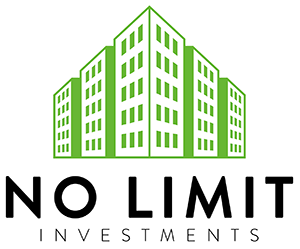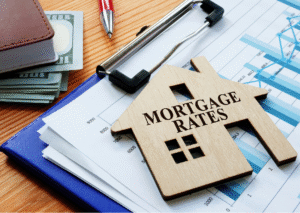What Is Real Estate Crowdfunding and Why Is It Growing So Fast?
Real estate crowdfunding allows investors to pool their money online to finance property deals. Instead of purchasing entire buildings or land parcels on their own, individuals can invest smaller amounts through platforms that manage the acquisition, development, or renovation of real estate. This model democratizes property investing by opening opportunities to a wider range of investors who may not have the capital or expertise to buy entire properties.
The U.S. Securities and Exchange Commission (SEC) has established regulations under the JOBS Act of 2012 that allow both accredited and, in some cases, non-accredited investors to participate in crowdfunding campaigns. According to the SEC’s “Regulation Crowdfunding” guidelines, these investments offer transparency through mandatory disclosures and online access to project details (“Regulation Crowdfunding,” U.S. SEC).
This evolution in property investing aligns with the broader goal of helping everyday investors access lucrative markets that were once limited to large developers and institutional funds.
How Does Real Estate Crowdfunding Work?
Real estate crowdfunding operates by connecting sponsors (those managing or developing the property) with investors through a digital platform. Each investor contributes capital toward the project and receives proportional returns based on their investment share.
Typical project types include:
- Residential properties (single-family rentals or fix & flip projects)
- Commercial developments (office buildings, retail spaces)
- Multi-family units (apartment complexes or housing projects)
- New construction or land development projects
Depending on the campaign, investors might earn from rental income distributions, profit upon property sale, or interest payments from debt investments.
At this stage, investors can use different financing tools to enhance returns. Services such as Fix & Flip Loans, Buy & Hold Mortgages, and BRRRR Financing, offered by No Limit Investments, can provide the leverage needed to participate in projects more effectively.
What Are the Advantages of Investing Through Real Estate Crowdfunding?
Crowdfunding introduces several key benefits compared to traditional real estate investing:
- Lower entry costs: Investors can start with smaller amounts rather than large down payments.
- Diversification: You can participate in multiple properties or project types, spreading risk across locations and sectors.
- Passive income: Many platforms offer dividends from rental income or loan interest.
- Transparency: Investors can track progress, view financial projections, and access detailed reports online.
- Professional management: The projects are typically managed by experienced developers or property managers, reducing hands-on responsibility.
For example, pairing crowdfunding opportunities with Cash-Out Refinance or DSCR Loans can help investors tap into existing equity or use rental income to qualify for additional properties, two strategies that align perfectly with portfolio diversification goals.
How Can Real Estate Crowdfunding Fit Into a Larger Investment Strategy?
Real estate crowdfunding is not meant to replace traditional investing. Instead, it serves as a strategic complement. It allows investors to diversify across asset types without heavy capital requirements while maintaining control over their personal portfolios.
For seasoned investors, this means:
- Using New Construction Loans to finance new builds while crowdfunding smaller side projects.
- Applying Business Credit Facilities to support ongoing property acquisitions or improvements.
- Leveraging Credit & Debt Advisory services to structure loans efficiently, keeping personal finances and investment accounts healthy.
This blended approach, mixing direct ownership, crowdfunding, and traditional lending—can result in balanced cash flow and long-term equity growth.
What Are the Risks of Real Estate Crowdfunding?
Like all investments, real estate crowdfunding carries risks. Investors should be aware of potential pitfalls before committing capital.
Key risks include:
- Illiquidity: Many crowdfunding investments cannot be easily sold or withdrawn before the project ends.
- Platform reliability: The quality of the platform and project sponsor directly affects the outcome.
- Market fluctuations: Economic downturns can reduce property values or delay returns.
- Lack of control: Investors rely on third-party management and decisions.
The U.S. Securities and Exchange Commission (SEC) advises investors to review offering documents carefully and ensure they understand the nature of each investment. Investors can reduce risk by diversifying across multiple projects and working with credible financing partners who provide Real Estate Financing Solutions and Growth & Development Services for strategic portfolio oversight.
How Can Investors Evaluate Crowdfunding Opportunities?
Evaluating a crowdfunding deal involves the same diligence as any traditional real estate transaction. Investors should consider the following factors:
- Project sponsor experience: Review the track record and prior project outcomes.
- Market location: Study the neighborhood, demand trends, and comparable property data.
- Financial structure: Understand how returns are distributed—equity-based, debt-based, or hybrid.
- Projected ROI: Assess whether the risk level matches your target return.
- Exit strategy: Determine how and when profits will be realized.
Reliable partners like No Limit Investments offer tools such as Real Estate Financing Solutions and Credit & Debt Advisory to help investors interpret financial metrics, evaluate cash flow potential, and ensure proper loan-to-value ratios before committing funds.
How Can Real Estate Crowdfunding Support Long-Term Wealth Creation?
The greatest advantage of real estate crowdfunding lies in scalability. It allows investors to join projects that align with their financial goals, even if they start small. Over time, reinvested profits and compounded returns create long-term growth.
Strategic investors often integrate crowdfunding with:
- Buy & Hold Mortgages to sustain rental income from long-term properties.
- BRRRR Financing to purchase, renovate, rent, refinance, and reinvest capital.
- Cash-Out Refinance options to fund new opportunities without liquidating assets.
- New Construction Loans for building modern multi-unit developments.
By combining these financial strategies, investors can create an ongoing cycle of portfolio expansion that compounds wealth steadily over time.
What Role Do Financing Partners Play in Real Estate Crowdfunding Success?
While crowdfunding simplifies entry into real estate, success depends heavily on smart financing. Working with experts ensures access to flexible funding, accurate property analysis, and customized lending options.
No Limit Investments provides such support through:
- Fix & Flip Loans for short-term project financing.
- DSCR Loans for rental property qualification based on cash flow, not personal income.
- Business Credit Facilities for scaling operations or managing multiple projects simultaneously.
- Credit & Debt Advisory to maintain a healthy financial structure.
- Growth & Development Services to support strategic expansion.
With professional guidance, investors can pair crowdfunding with robust funding frameworks that support long-term success.
How Can Investors Get Started With Real Estate Crowdfunding?
Starting with real estate crowdfunding requires clarity on goals, budgets, and risk tolerance. Here’s a simple process for beginners:
- Educate yourself: Learn about crowdfunding regulations, project types, and return structures.
- Set your objectives: Decide if you want income, appreciation, or diversification.
- Choose reliable platforms: Verify SEC registration and transparency of project sponsors.
- Analyze opportunities: Look for properties in stable or growing markets.
- Seek financing: Explore Real Estate Financing Solutions such as Fix & Flip Loans or Buy & Hold Mortgages to expand your capacity.
- Monitor progress: Track investment updates, distributions, and reports.
With careful planning and reliable financing guidance, investors can gradually build a sustainable real estate portfolio supported by both crowdfunding and conventional lending.
Why Should Investors Consider Partnering With a Professional Financing Team?
Partnering with a professional financing partner ensures every stage of your investment is optimized, from acquisition to refinancing. It allows investors to structure deals strategically, manage multiple income sources, and maximize returns while minimizing risk.
By working with experienced professionals who offer BRRRR Financing, DSCR Loans, and New Construction Loans, investors can ensure smooth transitions between funding phases. Moreover, Credit & Debt Advisory helps maintain a healthy balance sheet, while Growth & Development Services provide the mentorship and long-term planning necessary for success.
Ready to Expand Your Portfolio?

Real estate crowdfunding is more than just a trend, it’s a practical pathway to scalable wealth. If you’re ready to explore opportunities that merge modern technology with proven real estate principles, connect with a trusted financing partner.
Visit No Limit Investments to access expert guidance, flexible funding, and strategic solutions designed to help you build a diversified and profitable portfolio today. Call today!
Final Thoughts
Real estate crowdfunding represents the future of property investment. It allows investors to start small, diversify intelligently, and grow steadily. However, true success comes from understanding how to balance crowdfunding with strong financial foundations. By leveraging strategic services such as Fix & Flip Loans, Buy & Hold Mortgages, BRRRR Financing, and Real Estate Financing Solutions, investors can turn opportunities into sustainable wealth. With expert support from financial professionals and a clear long-term vision, any investor can build a portfolio that thrives across markets and economic cycles.
Works Cited
“Regulation Crowdfunding.” U.S. Securities and Exchange Commission, 2023, https://www.sec.gov/smallbusiness/exemptofferings/regcrowdfunding.
“Investor Bulletin: Crowdfunding for Investors.” U.S. Securities and Exchange Commission, 2023, https://www.sec.gov/oiea/investor-alerts-and-bulletins/ib_crowdfunding.html.
Frequently Asked Questions (FAQ)
- What Is the Minimum Investment Required for Real Estate Crowdfunding?
The minimum investment varies depending on the platform and project type. Some crowdfunding opportunities allow participation for as little as $500 to $1,000, while others require higher contributions. Investors can begin small to test the waters, then gradually scale up as their comfort and knowledge increase. Working with financing partners who offer Business Credit Facilities or Credit & Debt Advisory can also help investors plan funding more efficiently and take advantage of larger opportunities over time.
- Can Real Estate Crowdfunding Replace Traditional Property Ownership?
Not entirely. Crowdfunding complements, rather than replaces, traditional property ownership. It’s a great way to diversify into multiple real estate projects without directly managing tenants or maintenance. However, seasoned investors often combine crowdfunding with traditional investments financed through Fix & Flip Loans, Buy & Hold Mortgages, or BRRRR Financing to achieve both passive and active income streams within a balanced portfolio.
- How Can I Reduce Risks When Investing in Real Estate Crowdfunding?
Risk management starts with thorough research. Investors should carefully review each project’s sponsor background, financial structure, and market performance. Diversifying across multiple deals also minimizes exposure. Partnering with a reputable financial service like No Limit Investments helps ensure that you access professional Real Estate Financing Solutions and Growth & Development Services, both of which provide strategic insight and guidance for safer, long-term investing.
- What Types of Returns Can I Expect From Real Estate Crowdfunding?
Returns depend on the structure of the investment. Equity deals typically generate profits upon sale or appreciation, while debt-based investments produce regular interest income. On average, investors may earn 8% to 12% annual returns, though outcomes vary based on market performance. Investors can enhance returns by combining crowdfunding participation with Cash-Out Refinance or DSCR Loans to reinvest profits and expand their property holdings strategically.
- How Do I Get Started With Real Estate Crowdfunding?
To begin, research credible platforms that are registered with the U.S. Securities and Exchange Commission (SEC). Review each project’s disclosure documents, and start with smaller amounts while you learn. Next, identify financing options that align with your goals—such as New Construction Loans, Buy & Hold Mortgages, or BRRRR Financing—to increase your purchasing power. For expert guidance, visit https://nolimitinvestments.net/ and explore tailored funding solutions that make investing simpler, safer, and more profitable.







